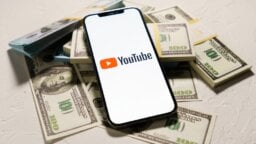Is the music industry truly united on the thorny subject of YouTube and Article 13?
Leading music companies and trade bodies – not to mention Sir Paul McCartney – have piled on support for Article 13, a provision within the European Copyright Directive which seeks to ensure legal repercussions for digital platforms which host unlicensed music, even when that copyright infringement is user-generated.
Indeed, we’ve published two pieces on MBW today (September 11) which chime with this viewpoint – from European independent music coalition IMPALA and from UK-based independent label collective AIM.
The timing of these op/eds is no fluke: tomorrow (September 12) will see a crucial vote on the European Copyright Directive, and therefore Article 13, within the European Parliament.
YouTube, meanwhile, has publicly come out against Article 13. Its arguments are being backed by the likes of Sir Tim Berners-Lee, father of the internet, as well as Wikipedia founder Jimmy Wales and multi-Platinum-selling artist Wyclef Jean.
And now this.
One figure making a strong, surprising case against Article 13 today is Pascal Nègre – a legend of the French music business who headed up Universal Music Group in the region for 18 years, from 1998 to 2016.
Nègre, who spent 26 years at UMG in total, is now the boss of independent label Six et Sept, in addition to #NP – the artist management company he runs in conjunction with Live Nation.
Here, in an exclusive English-language blog for MBW, Nègre explains why, far from benefitting artists and music rights-holders, he believes the passing of Article 13 would actually “take our industry and society backwards”…
I am concerned by the Copyright Directive currently being discussed in the European Parliament, and especially Article 13.
This Article, as it currently stands, would require any platform to systematically detect and block any uploading by a user of a potentially copyright-protected content – not just music – except when a license agreement has previously been concluded with the beneficiary or its representatives.
This very broad provision could actually have a negative impact on creation, since it would lead to some form of blind, automatic and systematic censorship.
After 35 years of working in the music industry, I feel that this would ultimately prove bad for artists, the music industry, and society.
“This very broad provision could actually have a negative impact on creation, since it would lead to some form of blind, automatic and systematic censorship.”
Music has unique cultural value. It brings us together, reminds us of our collective stories, and provides social commentary unlike any other art form.
It also has monetary value.
I support music rightsholders and creators who want copyright protections and fair pay for fair play. It is important that platforms behave responsibly and uphold their agreements with labels, publishers, and collection societies.
This is non-debatable.

However, the proposed Article 13 of the Copyright Directive is the wrong way to go about this.
The internet – specifically, internet piracy – once felt like a mortal threat, but things have changed.
Piracy is down, and digital music is booming.
User-generated content platforms like YouTube, Vimeo, and Soundcloud have lowered barriers for musicians to share their works, connect with fans, and be discovered.
“Article 13 ignores all of this progress.”
Online platforms have also evolved copyright management tools that let people protect their rights and choose what’s done with their content.
For instance, on YouTube, Content ID provides rightsholders with a way to block content if they want, or leave it up and make money.
Most music rightsholders choose the latter, and that’s given them an entirely new revenue model that didn’t exist before the internet.
Article 13 ignores all of this progress.
To become a renowned-star, an artist begins as an enlightened amateur, uploading his work to assess the audience’s reactions and start building a fan community.
The first time I heard Kendji Girac sing, I remember it well, it was on a video in which he was playing a cover of “Maître Gims”. The video had been shot by his uncle and uploaded on YouTube.
Since then, he has sold more than two-and-a-half million albums.
“Rather than continued industry collaboration and innovation, [Article 13] would take our industry and society backwards.”
Above all, there should be no legal barriers that in the long run could complicate or even prevent these first artistic steps from being exposed. Otherwise the whole process of creation allowing the emergence of the next generation of artists will be undermined.
Rather than continued industry collaboration and innovation, Article 13 would take our industry and society backwards.
Rather than building on embracing the way the internet allows musicians and fans to more easily engage with one another, it would erect new barriers for the creators and artists who depend on and thrive thanks to online platforms.
I care deeply about artists getting paid.
Our industry is not rigid, and I understand that some supporters of Article 13 are well-intentioned. But Article 13 doesn’t move things forward; it turns back the clock.
I urge the European Parliament to set Article 13 aside, and instead engage the full array of creators, businesses, and individuals who have something at stake in this discussion to find a better way forward, that fits everyone.Music Business Worldwide




